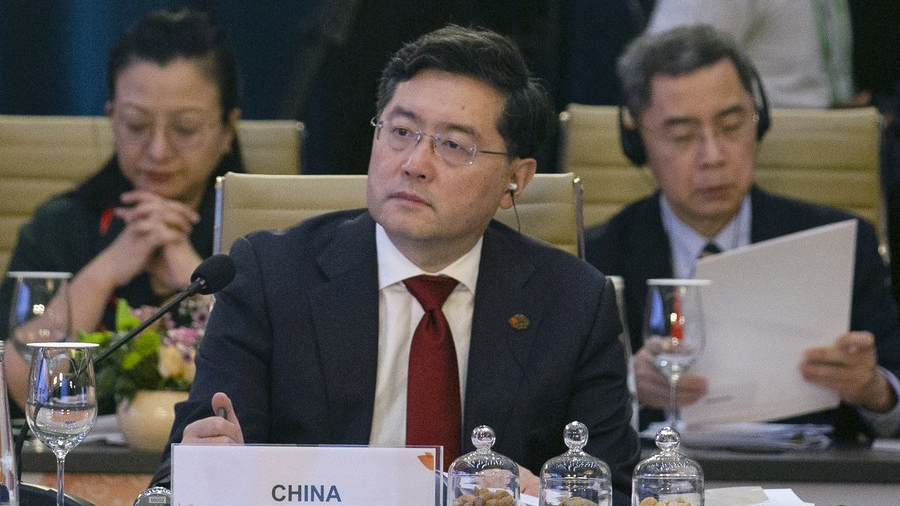
Chinese Foreign Minister Qin Gang attends the Group of 20 (G20) Foreign Ministers' Meeting in New Delhi, India, March 2, 2023. [Photo/Xinhua]
By Andrew Korybko
On March 2, newly appointed Chinese Foreign Minister Qin Gang made his global debut at the G20 Foreign Ministers' Meeting in New Delhi, during which he defended true multilateralism in response to the U.S.-led West pushing its so-called rules-based order concept. His speech spoke about the need to jointly develop globalization while also ensuring that its benefits are more fairly distributed, especially among developing countries, while his U.S. counterpart Antony Blinken ranted about Ukraine.
The contrast between these two diplomats' approaches towards this event speaks volumes about their respective countries' differing worldviews. The Chinese Foreign Minister explained why the world needs to urgently come together at this historic moment in international relations in order to restore stability and help the less fortunate, while the U.S. Secretary of State was more concerned about dividing the world by pushing his side's solution to the Ukrainian crisis, which wasn't appropriate for the G20 format.
On that topic, which many observers nowadays regard as a Russian-NATO proxy war, Foreign Minister Qin reminded his counterparts of China's recently published Global Security Initiative Concept Paper about peacefully resolving this crisis. These were gentle statements of international diplomatic facts that were pertinent to the overall discussion, but they weren't aggressively imposed or shared with the intent of exacerbating preexisting international divisions like Blinken's statements were.
The reason why the Chinese Foreign Minister touched upon the Ukrainian crisis in the first place is because its far-reaching consequences are making life much more difficult for the vast majority of humanity from the Global South. Developing countries have seen their food and fuel security threatened as a result of everything that transpired from this conflict thus far, which also had the effect of worsening their struggles with debt that arose during the COVID-19 pandemic.
As a forum of the world's twenty largest economies, the G20 has a moral responsibility to the rest of the international community and especially to those that are less fortunate than this group. The only way to improve the global situation for everyone is to practice true multilateralism, uphold the UN Charter and everything related to it, eschew bloc politics and Cold War thinking, and focus on realistic goals-oriented tasks that unite the world instead of further divide it, exactly as Foreign Minister Qin suggested.
Building upon the last-mentioned point, the highest priority must be in ensuring food and fuel security for developing countries in parallel with improving global governance so that they're more fairly represented among the IMF, World Bank, and other groups that make important decisions on relevant matters. Those states also shouldn't be punished for the circumstances beyond their control, namely the COVID-19 pandemic and the Ukrainian crisis, that led to them being unable to timely service their debts.
It was with the aforesaid observation in mind that Foreign Minister Qin said during his speech that "China has suspended more debt service payment than any other G20 member, and participated in the debt treatment under the Common Framework. We hope that multilateral financial institutions and commercial creditors will be actively involved in the debt treatment of developing countries." By leading the way, China showed that it's indeed possible for others to do the same if they have the will.
Considering the content of his speech and the specific context in which it was shared, it can be said that Foreign Minister Qin's global debut was a stunning success that also served to showcase how responsible China is as a major country. Instead of widening international divisions by aggressively imposing unilateral solutions to sensitive issues like his U.S. counterpart did, China's Foreign Minister defended true multilateralism with a view towards uniting the world during these tough times.
Andrew Korybko is a Moscow-based American political analyst.

 中文
中文



